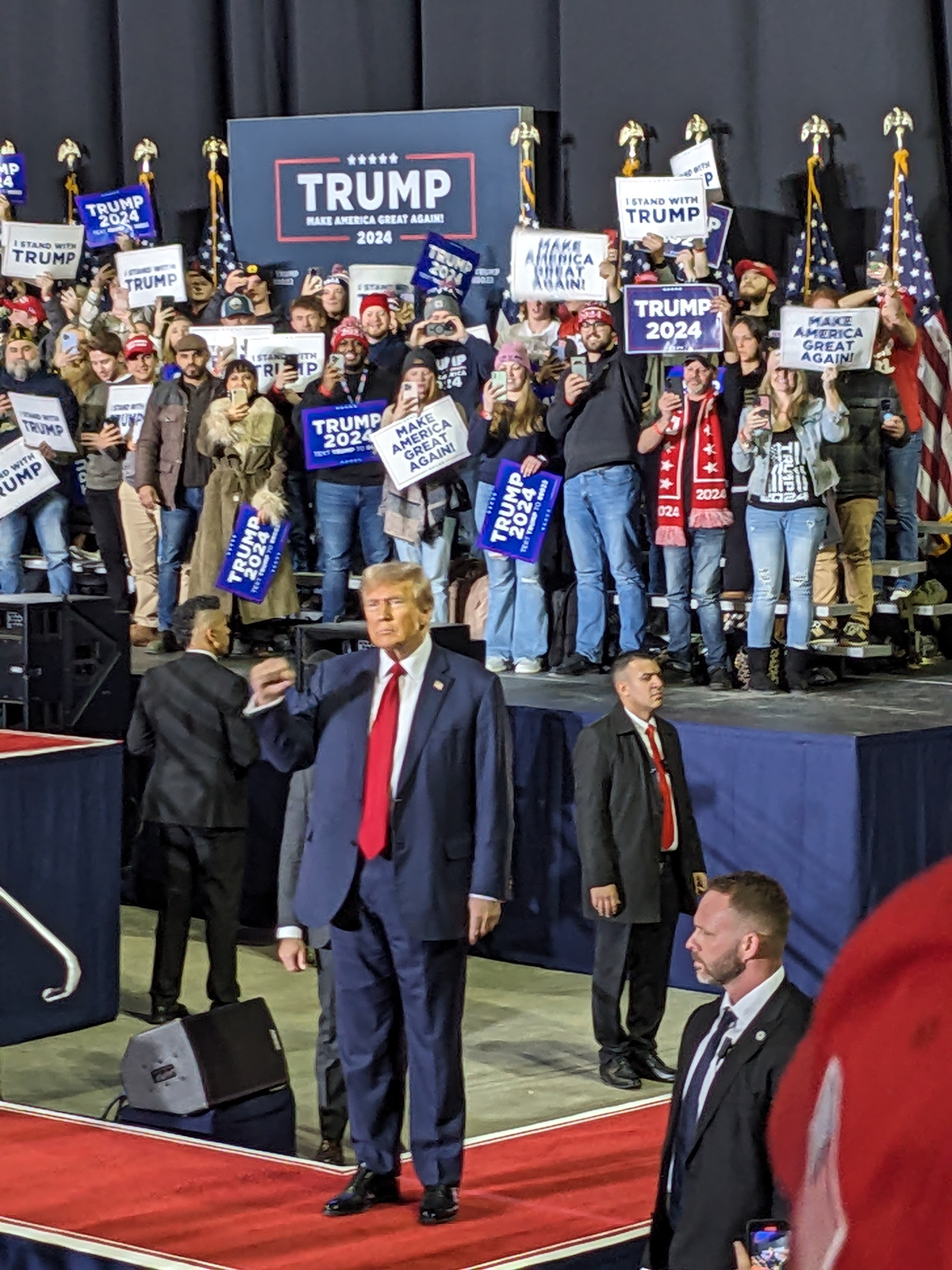The topic of American Jews and Israel growing apart is an omnipresent one in Jewish circles -- a fear I've seen raised for as long as I can remember. Obviously, we're hearing more about it now, particularly as younger Jewish voices become increasingly prominent in protests against Israel and Israel's war in Gaza. But the fear is not new, and there is a familiar rhythm to it.
But while the discussion about the growing gap between American and Israeli Jewry almost inevitably is framed against the backdrop of Gaza and the occupation and settlements, I want to make an entry to this discussion that has nothing to do with Palestine, but whose impact is I think very important and very underrated. Admittedly, given all that's happening in Palestine, that feels almost absurdly self-centered. All I can say to that is that the fraying connection between American Jews and Israel is an important topic, and this is an underdiscussed element of that topic. I offer it not to the exclusion of explanations that are premised on genuine moral or political sentiments about Palestine, but as a complement to them.
So, without further throat-clearing, here is my claim as to one reason American Jews are increasingly distancing themselves from Israel:
The Israeli establishment is increasingly deeply, openly contemptuous of American Jews.
Again, we can bracket everything having to do with Palestine and Palestinians. There's plenty to talk about there, but I won't talk about here. Whenever one talks about diaspora Jewish grievances against Israel, one is immediately met with the claim that the diaspora has no claim to speak on matters of "security" in a country they don't live in. There's plenty one could say to that, but fine, we'll leave "security" aside.
Instead, we'll start with a fact that has nothing to do with security: most American Jews are not Orthodox. We're Reform or Conservative (if affiliated at all). But these denominations of Judaism -- the denomination most American Jews identify with -- are not treated equally in Israel. Indeed, they are subject to heaps of contempt, scarcely recognized as Jews at all.
This has tangible consequences. We talk a lot about interfaith families, but there are many Jewish families whose status as Jews in Israel is in doubt. What happens when their matrilineal lineage might be traced back to a woman who had the temerity to convert under the oversight of the Jewish community most American Jews live in? Non-Orthodox conversions are barely recognized even for purposes of the law of return, and that begrudging acceptance doesn't extend to other aspects of Jewish personhood. How insulting, for American Jews to be told that the way we're Jewish isn't good enough to be fully recognized as Jewish in the eyes of Israel.
Insulting -- that's too mild. I can speak for myself here: my wife is Jewish. Her conversion was done under the auspices of the Jewish tradition through which I've lived my entire life. She lives a Jewish life. She celebrates Jewish holidays. She volunteers for Jewish non-profits. As far as I'm concerned, she's as Jewish as I am. To question her Judaism necessarily -- can only -- be based off a denigration of my Judaism. To hear that my Jewish wife, and through her our Jewish children, would not be treated as fully Jewish in a Jewish state is fury-inducing. Every time I think about it, I am filled with rage. How many of us are in similar circumstances? How many of us see our or our loved one's disrespected as Jews by the state that claims our fidelity on the basis of shared peoplehood?
There's more: half of all Jews are forbidden from praying as equals at one of our religion's holiest sites. Try to hold an important religious rite -- your child's Bar Mitzvah, say -- at the Western Wall, and you risk being attacked by an angry mob. It is very much in the realm of argument that the median American Jewish family would face more official, state-sponsored discrimination as Jews in Israel than they would in America.
And that doesn't get into the constant thumbs in the eye the Israeli government seemingly loves to give to the American Jewish people. Netanyahu's speech before Congress. Bragging that they prefer the support of Evangelical Christians over diaspora Jews. The constant ooze of contempt and disdain is impossible to ignore.
A few days ago, a college friend of mine wrote a post about the increasing gap between American Jewish sentiment and pro-Israel politics leaving Zionism with "nowhere to go". He has always been anti-Zionist, and so was of course delighted at the development. But one observation he made for why the trend seemed to be accelerating was that American Jews were increasingly discovering they simply had nothing in common with Israeli Jews. We're fundamentally two different peoples. There's no special bond between us, no particular reason to care more about them (or them us) beyond whatever general humanistic feeling we might have to any other group of people half the world away.
He said this with triumph. Many others will view it mournfully. And to some extent I think he necessarily overstates the case, if only because familial ties unite many (though not all) of us. Even for the rest of us, the severing of a sense of peoplehood is grave and painful, and won't be done easily. As much as some pretend otherwise, diaspora Jews disassociating themselves from Israel is not a free action. It hurts. The whole point of bonds like this is that they persist and endure through difficult and challenging times; they are not meant to be transitory expressions of instrumental alignment. But when a member of your family (literal or figurative) doesn't treat as if you are special, as if you are a member of a special circle of care and concern, that exerts a continual and powerful centrifugal force. Eventually, it will pull (some of? all of?) us apart.
And this problem is not one that can be resolved by the normal proposed solutions. It isn't a matter of young Jews lacking "education" on what's happening in the Middle East. It isn't caused by Jews lacking connection to their Jewish heritage (unless we buy into the notion that Reform and Conservative Jews Don't Count). It isn't attributable to a desire to "fit in" with the cool crowd or following the latest social media trend. It can't be laid at the feet of "Critical Race Theory" or "intersectionality" or whatever buzzword will be screamed across Algemeiner headlines next week. The brute truth is that American Jews are being hammered, again and again and again, with just how little the Israeli establishment thinks of us.
I'm not saying anything especially new here. Six years ago I wrote in the Forward that "Israel doesn't care what American Jews think." (the median social media response I got from Israelis to that column was "you're damn right we don't, and also, fuck you for saying so."). And again, I'm not trying to discount the degree to which Israel's unjust treatment of Palestinians under occupation genuinely, legitimately, and viscerally offends many Jews.
But what I speak of here is a powerful negative force, and it is not getting better. And at any time, but perhaps especially under times of strain and stress, such a force will have its predictable effects.




.jpg)
.jpg)
.jpg)
.jpg)
%20large.jpg)





